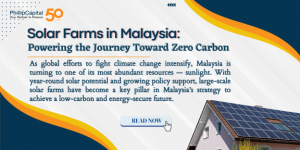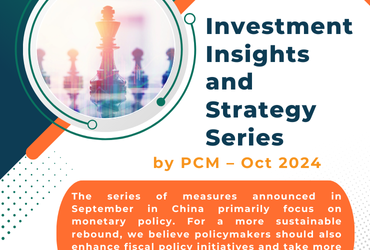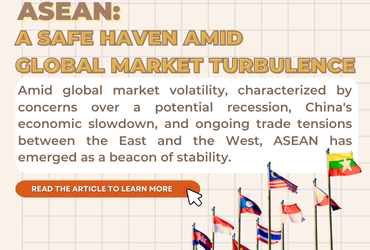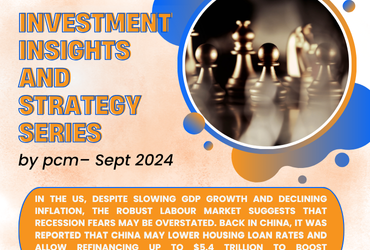
Solar Farms in Malaysia: Powering the Journey Toward Zero Carbon
As global efforts to fight climate change intensify, Malaysia is turning to one of its most abundant resources — sunlight. With year-round solar potential and growing policy support, large-scale solar farms have become a key pillar in Malaysia’s strategy to achieve a low-carbon and energy-secure future.
Accelerating the Energy Transition
Under the National Energy Transition Roadmap (NETR), Malaysia aims for 70% renewable energy capacity by 2050, with solar as the dominant contributor. In the nearer term, the target is to achieve a 31% renewable mix by 2025. These ambitions are supported by consistent solar irradiance and falling photovoltaic (PV) costs, which make solar farms both technically viable and economically attractive.
The Large-Scale Solar (LSS) programme — first launched in 2016 — has been a major catalyst. Through multiple phases, it has attracted strong participation from the private sector, driving billions in investment and adding thousands of megawatts of clean energy capacity. The latest phase, LSS-PETRA, is expected to deliver another 2,000 MW of solar capacity to the national grid.
Meanwhile, innovative projects such as floating solar farms are gaining momentum. Tenaga Nasional Berhad (TNB) is developing hybrid hydro-floating solar (HHFS) systems at its hydro dams, integrating solar power with existing hydropower infrastructure to optimise land use and enhance reliability.
Why Solar Farms Matter
Solar farms play a crucial role in reducing greenhouse gas emissions by replacing fossil fuel generation. A 50 MW solar facility can offset more than 60,000 tonnes of CO₂ annually, significantly supporting Malaysia’s Nationally Determined Contributions (NDCs) under the Paris Agreement.
Beyond environmental impact, solar energy enhances energy independence, reducing reliance on imported coal and natural gas. With minimal fuel costs and low long-term maintenance, solar power provides stable and predictable energy pricing, benefiting industries and consumers alike.
The sector’s expansion also fuels economic growth and job creation — from engineering and construction to research, manufacturing, and maintenance. As more local players enter the value chain, Malaysia gains not only cleaner power but also stronger domestic capabilities in green technology.
A Brighter, Cleaner Future
Momentum is clearly building. With supportive government policies like Net Energy Metering (NEM) for households and businesses, and the Corporate Renewable Energy Supply Scheme (CRESS) for large corporations, Malaysia is creating a fertile environment for both public and private investment in clean energy.
As technology improves and costs continue to fall, solar energy is expected to become the backbone of Malaysia’s renewable mix. The combination of utility-scale solar farms, floating solar systems, and corporate solar initiatives will accelerate the nation’s journey toward net-zero emissions by 2050.
Each new solar project is more than an energy investment — it is a commitment to sustainability, innovation, and national resilience. With continued collaboration between government, corporations, and investors, Malaysia’s solar farms are not just powering homes and industries — they are powering a cleaner, greener tomorrow.
Identify investment opportunities – Phillip Managed Account for Retirement (PMART) and Phillip Managed Account (PMA) ESG
In line with the nation’s goal towards sustainability, Phillip Capital Management has integrated ESG factors that we attest as material and relevant for a company’s financial performance and long-term sustainability into our investment decision-making process. These include but not limited to ESG ratings by established index, environmental considerations (climate change, natural resources preservation, pollution & waste), social considerations (health & safety, community engagement, employee relations) and governance considerations (board independence, transparency & disclosure, shareholder rights).
Separately, PCM offers PMART and PMA ESG, a discretionary portfolio that invests in stocks with high ESG ratings from the F4GBM and F4GBMS Indices. There are both conventional and Shariah options available. PMART and PMA ESG is suitable for investors who want to optimise the risk-adjusted return by constructing a diverse sustainable portfolio of ESG companies. Exhibits 1-4 show the performance for PMART ESG Conventional and Shariah.
Exhibit 1: Phillip PMART ESG Conservative Portfolio Performance
| YTD | 1Y | 2Y | 3Y | 5Y | |
| Phillip PMART ESG Conservative Portfolio | -0.65% | 0.55% | 20.40% | ||
| F4GBM | -9.74% | -6.21% | 9.37% |
Exhibit 2: Phillip PMART ESG Aggressive Portfolio Performance
| YTD | 1Y | 2Y | 3Y | 5Y | |
| Phillip PMART ESG Aggressive Portfolio | -0.65% | 0.55% | 20.40% | ||
| F4GBM | -9.74% | -6.21% | 9.37% |
Exhibit 3: Phillip PMART ESG Shariah Conservative Portfolio Performance
| YTD | 1Y | 2Y | 3Y | 5Y | |
| Phillip PMART ESG Shariah Conservative Portfolio | -1.62 | -1.54% | 8.15% | 8.20% | |
| F4GBMS | -6.52% | -5.36% | 6.91% | 6.79% |
Exhibit 4: Phillip PMART ESG Shariah Aggressive Portfolio Performance
| YTD | 1Y | 2Y | 3Y | 5Y | |
| Phillip PMART ESG Shariah Aggressive Portfolio | -1.62 | -1.54% | 8.15% | 8.20% | |
| F4GBMS | -6.52% | -5.36% | 6.91% | 6.79% |
Source: PCM, 31 August 2025, link
Please click on the link to learn more or email us at cse.my@phillipcapital.com.my if you require any further information.
Disclaimer
The information contained herein does not constitute an offer, invitation, or solicitation to invest in any product or service offered by Phillip Capital Management Sdn Bhd (“PCM”). No part of this document may be reproduced or circulated without prior written consent from PCM. This is not a unit trust or collective investment scheme and is not an obligation of, deposit in, or guaranteed by PCM. All investments carry risks, including the potential loss of principal.
Performance figures presented may reflect model portfolios and may differ from actual client accounts’ performance. Variations in individual clients’ portfolios against model portfolios and between one client’s portfolio to another can arise due to multiple factors, including (but not limited to) higher relative brokerage costs for smaller portfolios, timing of capital injections or withdrawals, timing of purchases and sales, and mandate change (e.g., Shariah vs. conventional). These differences may impact overall performance.
Past performance is not necessarily indicative of future returns. The value of investments may rise or fall, and returns are not guaranteed. PCM has not considered your investment objectives, financial situation, or particular needs. You are advised to consult a licensed financial adviser before making any investment decisions.
While all reasonable care has been taken to ensure the accuracy and completeness of the information contained herein, no representation or warranty is made, and no liability is accepted for any loss arising directly or indirectly from reliance on this material. This publication has not been reviewed by the Securities Commission Malaysia.






